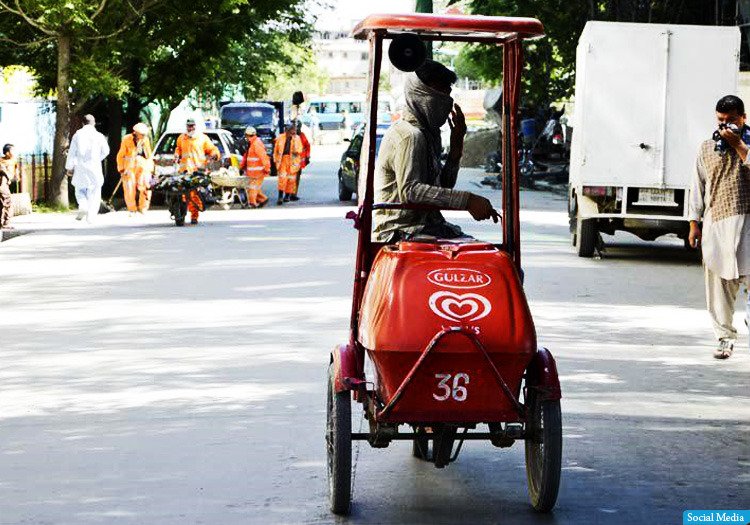A Child Laborer's Dream: I Want to Become a Doctor, But Poverty Blocks My Path

In recent years, across various provinces and especially in cities of Afghanistan, working children have become a common sight—engaged in all kinds of labor just to earn a piece of bread.
Many of these children polish shoes and sandals, push carts, or sell handmade goods, all of which are heavy burdens for their small hands and shoulders.
Among them is 13-year-old Javid, a resident of Khogyani district in Nangarhar province. He is the sole breadwinner for his six-member family.
Each day, Javid walks door to door and shop to shop in his district, selling ice cream from a pushcart.
His father passed away two years ago due to heart disease, and now Javid lives with his mother and four sisters in a rundown home.
Under the sweltering summer sun, he works tirelessly to earn a lawful income for his family and cover their basic expenses.
“All the family’s expenses are on me,” he says. “I earn around 100 to 150 Afghanis a day. With that, I bring home dry bread for my family at night.”
Javid added: “Since my father died, I’ve been working. The ice cream company gives me one Afghani per ice cream I sell. I make 100 to 150 Afghanis a day. It’s not enough for all our needs, but we get by.”
Due to economic hardship, Javid dropped out of school in the fifth grade. Still, he dreams of returning to school and becoming a doctor—hoping to one day help both his family and community.
Wearing worn-out, torn clothes, the signs of poverty are visible on his face. “If someone helped my family, I would go back to school and build a better future,” he says.
“When I see other kids going to school, I feel very sad,” Javid says. “I wish I could go too. I want to study. But if I don’t work, my family will go hungry.”
Despite the hardships, Javid appreciates the kindness of some people who give him money even if they don’t buy his ice cream.
He also complains about not having proper clothes or shoes, saying the heat makes his work even more difficult.
He calls on merchants and aid organizations to help him so he can attend school and continue his education.
“Our financial problems are getting worse every day,” he explains. “Before, my mother and two sisters used to sew clothes for others, but now no one brings them work. My sisters get upset that I work, but we have no choice. What else can we do?”
According to recent reports, the number of working children in Afghanistan is rising rapidly, causing serious concern.
UNICEF’s 2023 annual report states that nearly one in five children between the ages of 5 and 17 in Afghanistan are working—a significant increase compared to previous years.
Years of war, ongoing crises, and the COVID-19 pandemic have forced many families to send their children to work in order to survive.
